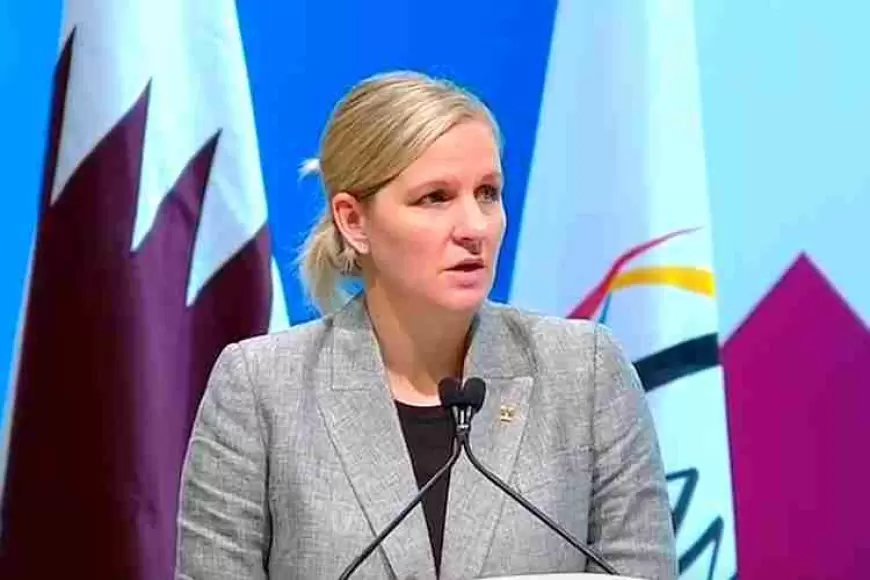Kirsty Coventry Becomes IOC’s First Female President in Historic Win
A two-time Olympic gold medalist, Coventry secured a commanding victory in Thursday’s election in Greece. She won 49 of the 97 votes in the first round, surpassing World Athletics boss Lord Coe, who was among the frontrunners.

At just 41, Kirsty Coventry has made history as the youngest-ever president of the International Olympic Committee (IOC) and the first woman to hold the position in its 130-year history. The former Olympic swimmer from Zimbabwe will take over from Thomas Bach, who has led the IOC since 2013.
Juan Antonio Samaranch Jr came in second with 28 votes, while Coe received just eight. France’s David Lappartient and Japan’s Morinari Watanabe secured four votes each, while Jordan’s Prince Feisal al Hussein and Sweden’s Johan Eliasch received two apiece.
Already an IOC executive board member, Coventry was widely seen as Bach’s preferred successor. Now, she steps into the role as the 10th IOC president, set to serve an initial eight-year term.
Coventry’s legacy in Zimbabwean sports is unmatched—she has won seven of the country’s eight Olympic medals, including back-to-back gold in the 200m backstroke at the 2004 and 2008 Games.
Reflecting on her historic win, Coventry described it as an “extraordinary moment.”
“The young girl who first started swimming in Zimbabwe all those years ago could never have dreamed of this moment,” she said.
“I am particularly proud to be the first female IOC president, and also the first from Africa. I hope that this vote will be an inspiration to many people. Glass ceilings have been shattered today, and I am fully aware of my responsibilities as a role model.”
During her campaign, Coventry promised to modernize the IOC, promote sustainability, embrace new technology, and empower athletes. She has also been vocal about protecting women’s sports, backing a blanket ban on transgender women competing in female Olympic events.
But her journey hasn’t been without controversy. Since becoming Zimbabwe’s sports minister in 2018, she has faced criticism over her ties to President Emmerson Mnangagwa’s government, which has been accused of corruption and human rights abuses.
Zimbabwe was banned from international football in 2022 due to government interference, and last year, the U.S. imposed sanctions on Mnangagwa and other top officials. Despite this, Coventry has defended her role, saying her focus has always been on advocating for athletes and developing sports in Zimbabwe.
Now, as the leader of the Olympic movement, she takes on the challenge of shaping the future of the Games, with the world watching closely.

 Jaanvy Gill
Jaanvy Gill